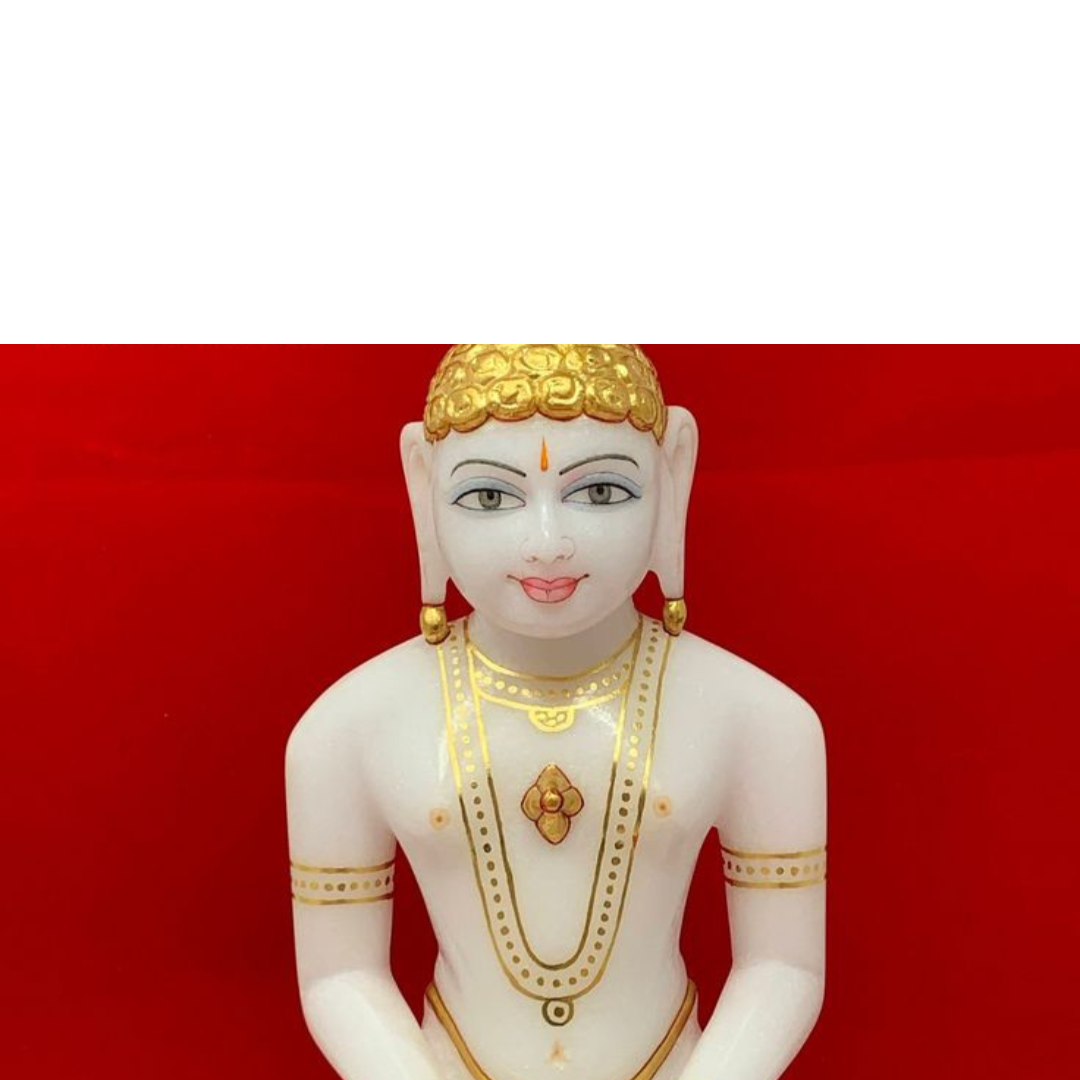Paryushan Parva Day 5: Uttam Satya Diwas—The Day of Truthfulness
When worldly illusions end, only truth remains. This “nothingness” is the embodiment of Shivatva—Shiva, Adinath, the first yogi, and the first Tirthankar. By following his path, one attains this state of nothingness, the ultimate truth, or God, within oneself.
As Mahatma Gandhi said, “There is no God greater than truth.”
On the fifth day of Paryushan Parva, Uttam Satya Diwas or the Day of Truthfulness, we dedicate ourselves to the invincible power of truth.
Mahatma Gandhi, the apostle of Satyagraha, once said, “I have nothing new to teach the world. Truth and non-violence are as old as the mountains. All I have done is to experiment with both as much as possible.” Through the power of Satyagraha, he not only overthrew the mighty British Empire, but he also described his life as an ongoing experiment with truth.
The Mahatma established the power of non-violence and truthfulness – fundamental principles of Jainism. These ideals transformed a weak, humble man into the Father of our Nation. Jain philosophy, especially the tenets of non-violence and truth, deeply influenced Gandhi. His practice of these principles in the struggle for India’s independence became a global example of the strength found in truth and non-violence.
The literal meaning of truth is Sat, which signifies existence. Existence is an attribute of the soul. Recognizing the soul’s true nature and taking refuge in it is the essence of following the true religion of truth.
As our elders have said: “Lack of truth, or lying, leads to sin.” If there is no need to speak, one should remain silent. But if speech is necessary, it should be limited and always truthful. Restraint in speech and adherence to truth is the way, as taught by scholars.
In Indian philosophy, truth also reflects the concept of an ever-pure and ever-free soul. This understanding naturally leads to the practice of avoiding harm to anyone’s feelings. Practicing truth means following it not only in words but also in thoughts and deeds, which purifies us. Truthfulness of heart gives rise to sensitivity, which we call the love of truth. It is a feeling of ease that arises within the one contemplating truth. This feeling is not a virtue but a reward of truthfulness. The practice of truth in daily life simplifies our lives, relieving stress, and bringing contentment.
पर्युषण पर्व दिवस 5: उत्तम सत्य दिवस या सत्यनिष्ठा का दिन
जब सांसारिक माया जाल ख़त्म होता है तब सिर्फ़ और सिर्फ़ कुछ नही (NO-THING) अर्थात् सत्य ही बचता है, यह nothingness ही साक्षात शिवत्व ‘शिव’ / आदिनाथ/ प्रथम योगी / प्रथम तीर्थंकर है और इनके मार्ग का अनुकरण करने पर अपने सब के भीतर के nothingness/ तीर्थंकर/भगवान/ सर्वोच्य सत्य की प्राप्ति होती है।
सत्य से बड़ा कोई ईश्वर नहीं है। ~ महात्मा गांधी।
पर्युषण पर्व के पांचवें दिन उत्तम सत्य दिवस या सत्यनिष्ठा का दिन हम इस दिन को सत्य की अजेय शक्ति को समर्पित करते हैं।
सत्याग्रह के दूत महात्मा गांधी ने एक बार कहा था कि मेरे पास दुनिया को सिखाने के लिए कुछ भी नया नहीं है। सत्य और अहिंसा पहाड़ों जितने पुराने हैं। मैंने बस इतना किया है कि जितना संभव हो सके, दोनों में प्रयोग करने की कोशिश की है। और सच में सत्याग्रह की शक्ति से उन्होंने न केवल सर्वशक्तिमान ब्रिटिश साम्राज्य को उखाड़ फेंका, बल्कि उन्होंने अपने पूरे जीवन को सत्य के प्रयोगों के रूप में वर्णित किया।
महात्मा ने अहिंसा और सत्यनिष्ठा की शक्ति यानी जैन सिद्धांत के मूल सिद्धांतों को स्थापित किया और इस शक्ति ने एक कमजोर, आधे-अधूरे व्यक्ति को हमारे राष्ट्र का पिता बना दिया। जैन धर्म के दर्शन, विशेष रूप से अहिंसा और सत्याग्रह का महात्मा पर महत्वपूर्ण प्रभाव था, जैसा कि हम सभी जानते हैं कि महात्मा ने भारत की स्वतंत्रता के लिए अपने संघर्ष में इन सिद्धांतों को व्यवहार में लाया था।
सत्य का शाब्दिक अर्थ है सत्, जिसका अर्थ है अस्तित्व। अस्तित्व आत्मा का गुण है। आत्मा के वास्तविक स्वरूप को पहचानना और आत्मा में शरण लेना निश्चय सत्य धर्म का पालन करना है।
जैसा कि बुजुर्गों ने कहा है- सत्य का अभाव या झूठ बोलने से पाप की प्राप्ति होती है। यदि बात करने की आवश्यकता नहीं है, तो बात नहीं करनी चाहिए, लेकिन यदि वास्तव में आवश्यकता है तो कम से कम शब्दों का प्रयोग करें और सब कुछ बिल्कुल सत्य होना चाहिए। व्यक्ति को हमेशा वाणी में संयम रखना चाहिए और हमेशा सत्य के मार्ग पर चलना चाहिए, ऐसा विद्वानों ने कहा है।
भारतीय दर्शन में सत्य का अर्थ हमेशा शुद्ध और हमेशा मुक्त आत्मा की अवधारणा भी है, यह किसी की भावनाओं को ठेस न पहुँचाने के अभ्यास में स्वाभाविक रूप से प्रवाहित होता है। सत्य का अभ्यास करने का मतलब है सिर्फ़ शब्दों में ही नहीं बल्कि विचारों और कर्मों में भी सत्य का पालन करना और यह हमें शुद्ध करता है। हृदय की सत्यता निश्चित रूप से संवेदनशीलता की एक अवस्था को जन्म देती है जिसे हम सत्य का प्रेम कहते हैं। यह सहजता की भावना है, जो सत्य का चिंतन करने वाले व्यक्ति की संवेदनाओं में उत्पन्न होती है। यह भावना सद्गुण नहीं है। बल्कि यह हृदय की सत्यता के पुरस्कार का एक हिस्सा है। और दैनिक जीवन में सत्य का अभ्यास हमारे जीवन को सरल, तनाव मुक्त और संतुष्ट बनाता है।

